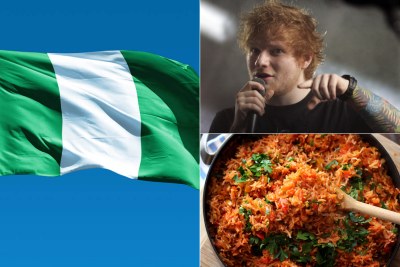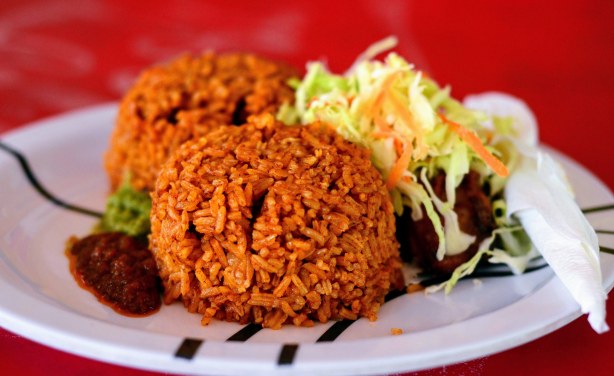-
Nigeria: Who Invented Jollof Rice? Senegal Beats Ghana and Nigeria to the Title
The Conversation Africa, 18 January 2023
The authorship - and therefore origins - of Jollof rice (called Ceebu jën in Senegal according to the Wolof spelling) is the subject of a spicy debate between West African… Read more »
-
Ghana: Ghana Overtakes Nigeria As Country With Most YouTube Searches for Jollof Rice
Premium Times, 22 August 2022
YouTube shared the statistics in commemoration of World Jollof Day. Read more »
-
Nigeria: Jollof Wars - Celebrating the Diversity of Taste At World Jollof Day Festival 2022
Vanguard, 5 August 2022
The fuel on which families, conversations, cultures and celebrations in West Africa runs. Unifying yet intensely divisive. A simple yet multifaceted delicacy with an extraordinary… Read more »
-
Nigeria/Ghana: Nigeria, Ghana Clash in 'Jollof Derby' for Place in the World Cup
Capital FM, 25 March 2022
The build up on social media has been immense and the banter has been huge with Nigeria and Ghana clashing in the first leg of the 2022 FIFA World Cup play-off in Kumasi on Friday… Read more »
Senegal Declared Inventor of Jollof Rice Over Ghana, Nigeria
The authorship - and therefore origins - of jollof rice (called ceebu jën in Senegal, according to the Wolof spelling) is the subject of a spicy debate between West African nations. In particular, Senegalese, Nigerians and Ghanaians claim ownership, and each believes their recipe surpasses all others, writes Fatima Fall Niang for The Conversation.
Ghana and Nigeria have been involved, for decades, in a fratricidal war on who has the best jollof rice, but Senegal went quietly and received the international accolade. At the end of 2021, Unesco included the Senegalese version of jollof rice on the intangible heritage of humanity list. This certification was a recognition of the know-how of the Senegalese of an integral part of an intangible heritage.
In a bid to settle the issue, the word Jollof refers to an ancient kingdom, constitutive of Senegal between the 12th and the 13th century. The origin of the dish is linked to a particular period in history - the entrenchment of colonial rule in West Africa. Between 1860 and 1940 the French colonisers replaced existing food crops with broken rice imported from Indochina.
As it happens in history, when art reaches a certain fame or notoriety, its paternity becomes an object of controversy. This is what has indeed happened with Jollof rice, adds Niang.
InFocus
-
Grammy award-winning British singer Ed Sheeran has added Nigeria to his bucket list - all because of jollof rice. Question is: how good is this jollof rice that the singer wants to ... Read more »



